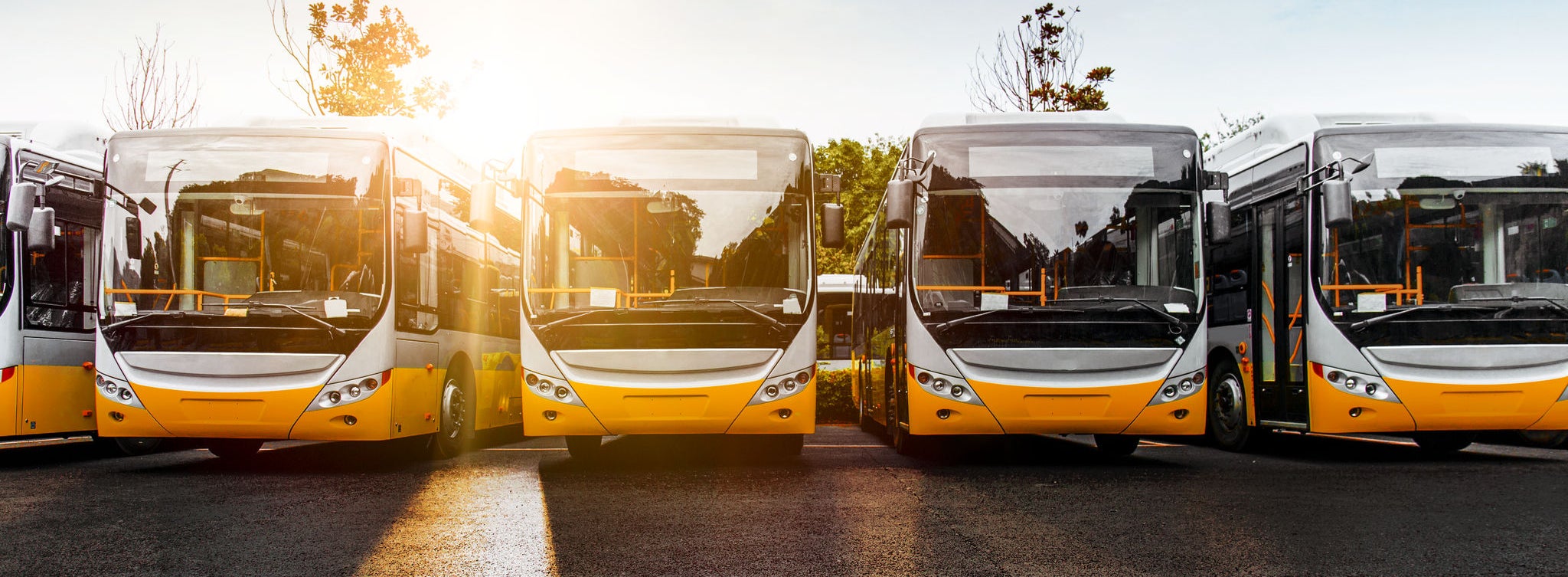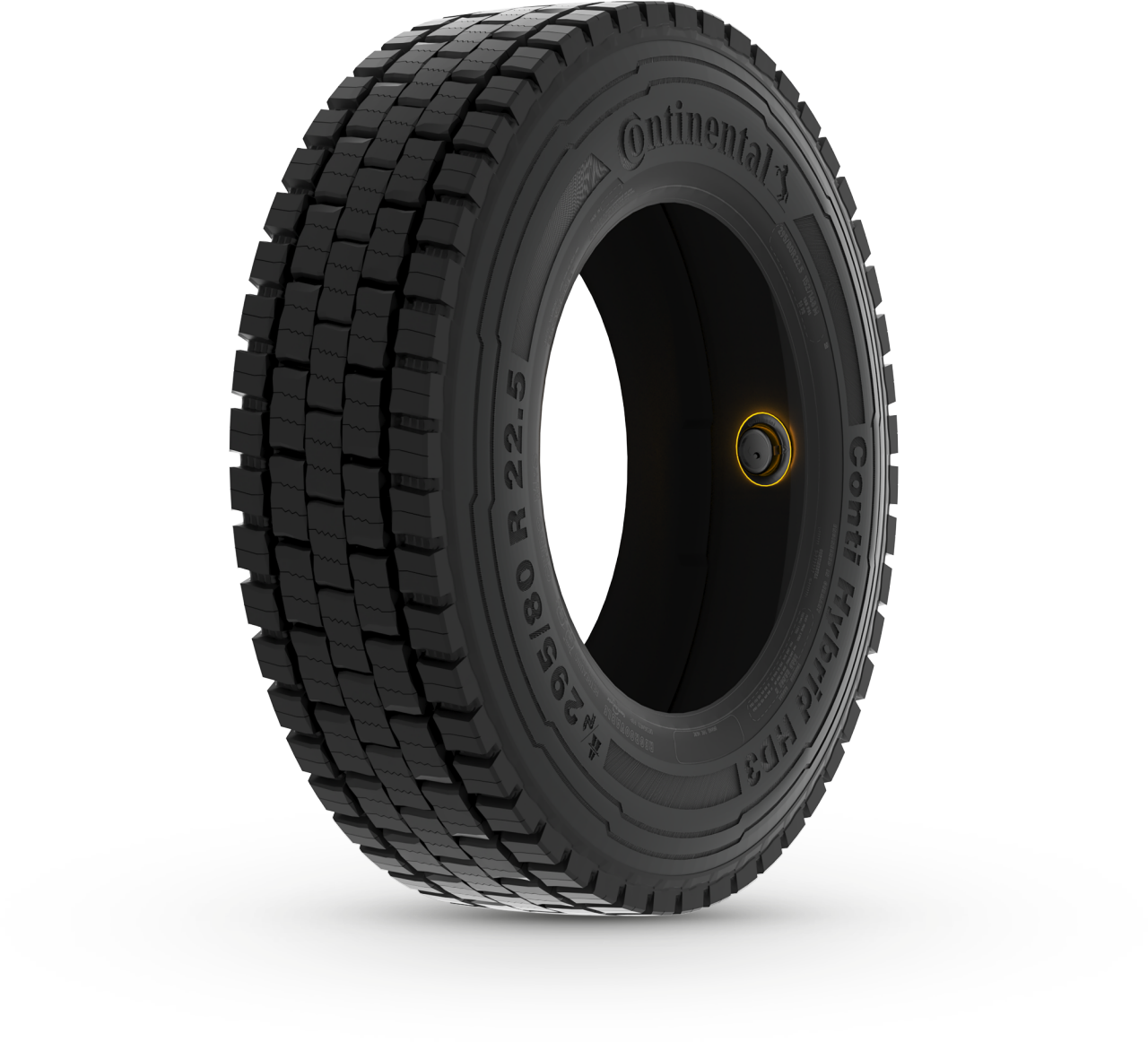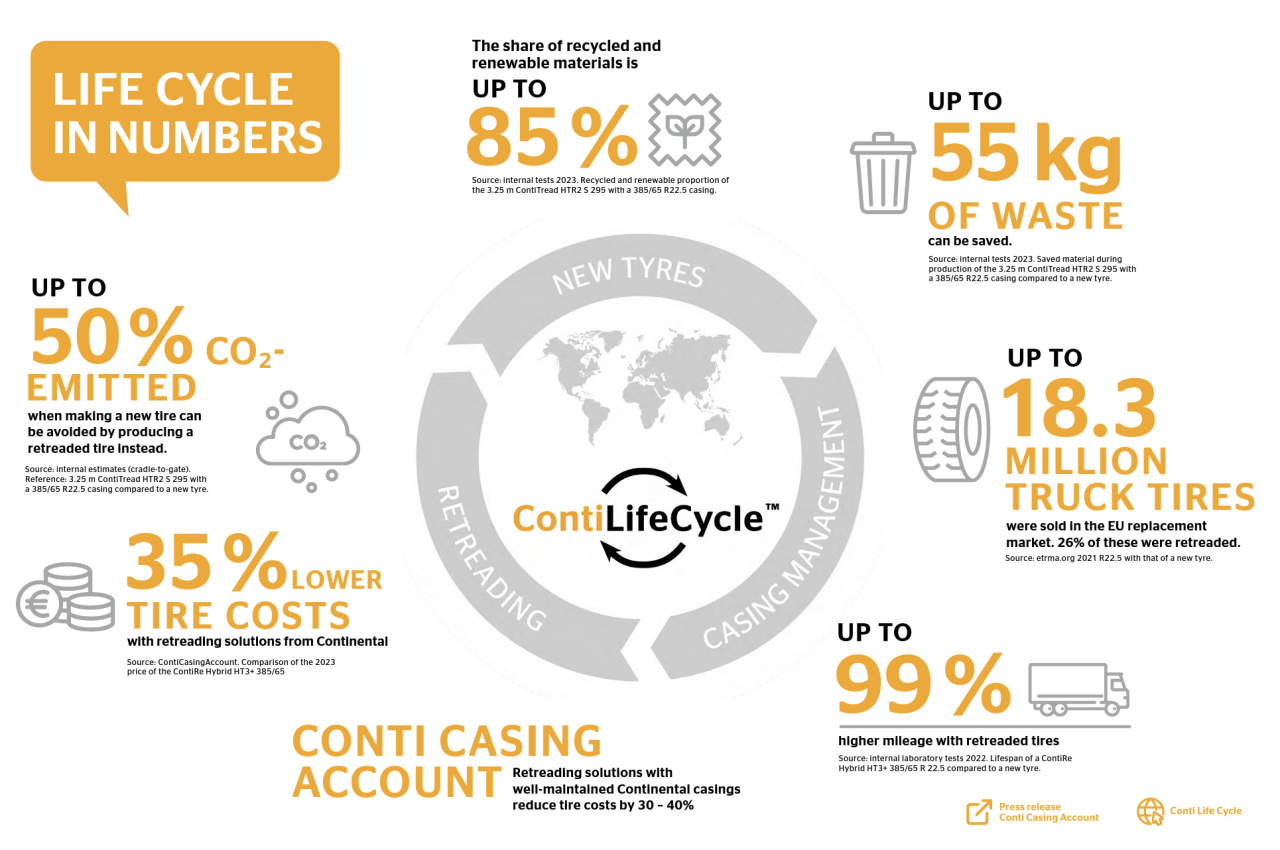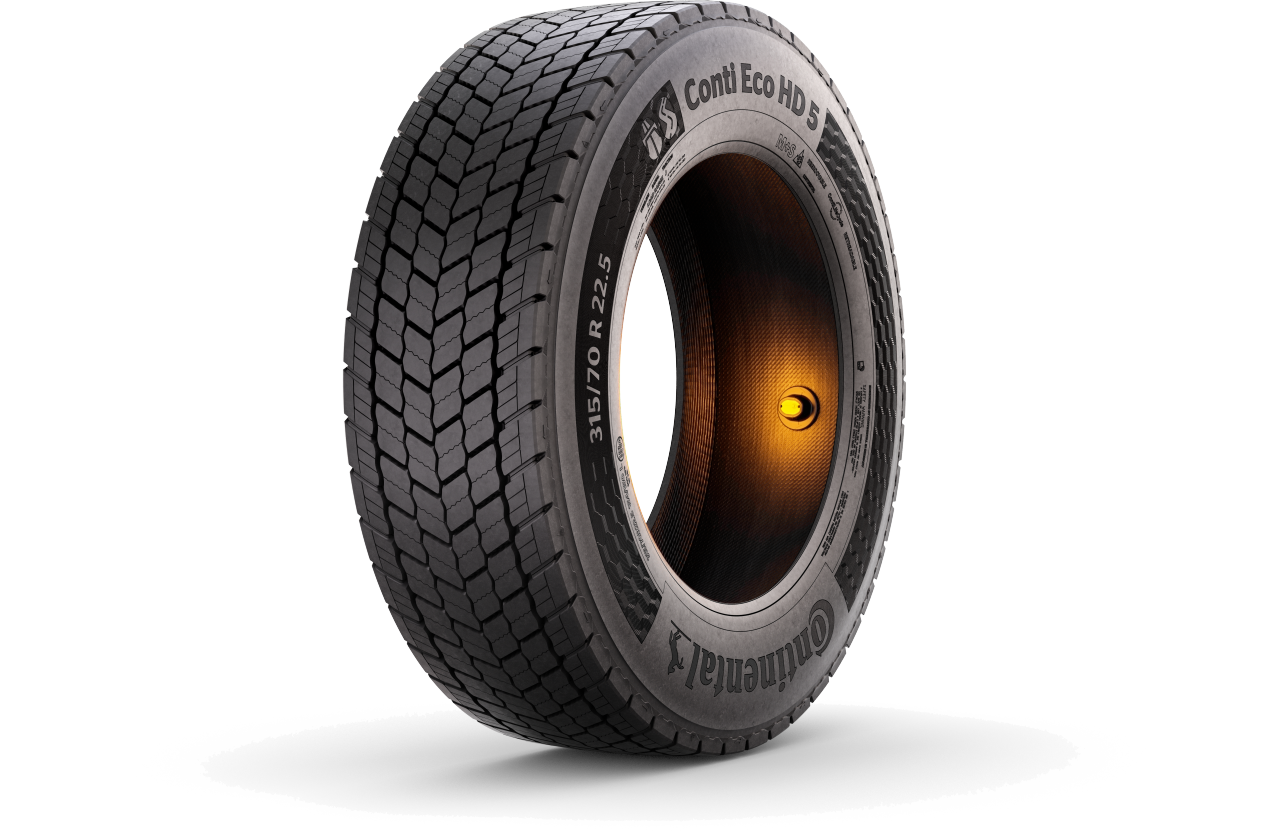
Visit Continental Tires in your country for local vehicle fitment
# Business know-how
Navigating the road to sustainable fleet management
Green fleet solutions

Our focus is on efficient tire management. Sustainability and digitalization are essential here"
Ralf Benack, Head of Conti360º solutions
Driving the future: how fleet managers navigate challenges
In today’s dynamic realm of fleet management, a compelling mantra echoes through the industry: “Digital, Connected, Sustainable.” These three words encapsulate the core mission of fleet managers in the transport and logistics sector. Their overarching objective is crystal clear: to champion environmental protection, conserve precious resources, and curtail the carbon footprint and emissions, all while navigating the turbulent waters of a fiercely competitive market. The journey unfolds against a backdrop of formidable challenges, including workforce shortages, escalating energy prices, and the delicate intricacies of supply chain management.

Sustainble fleet management: the path to a greener future
To stake a claim in the markets of the future, there's a pressing need to invest in sustainable logistics today. Central to this mission is the practice of environmentally conscious fleet management, spanning the full spectrum of vehicles, from passenger cars to vans, buses, and heavy-duty trucks. Embarking on this journey entails embracing modern vehicle technology, replete with a myriad of assistance systems, the transformative power of digitalization, dedicated emissions reduction strategies, the transition to battery-powered propulsion, meticulous fuel and energy conservation, resource-efficient driving practices, and the fine art of transportation and route optimization.
Across Europe, the implementation of continent-wide regulations like the EU taxonomy and the Green Vehicles Directive has propelled vehicle manufacturers and suppliers into the fold, making them active participants in crafting the blueprint for a greener, more sustainable future for logistics. One notable revelation along this sustainable journey is the pivotal role that tires play in shaping a fleet's sustainability and cost structure, with tire-related expenditures accounting for a substantial 53 percent of a truck fleet's total operational costs.

Navigating EU regulations and sustainability: fleet pressures and technological progress
In response to the European Commission’s strict guidelines regarding low-emission and emission-free commercial vehicles, fleet operators face mounting pressure to transition their fleets. The urgency is undeniable, the associated costs are substantial, and market conditions remain uncertain. In the tire realm, there’s significant progress to be made by adopting models with optimized rolling resistance, low noise levels, and suitability for electric vehicles. Professional tire management and digital solutions also play a pivotal role in achieving sustainability.
Michael Koch, responsible for sustainability and electric mobility in Continental’s R & D department, underscores the imperative nature of sustainability for a liveable future. Key focus areas in this context are electric mobility, which is increasingly prominent today and poised for further growth in the coming years, and the EU taxonomy, providing the framework for sustainability in Europe.
The Clean Vehicles Directive and the EU taxonomy create additional pressure, urging European countries to substantially reduce fleet emissions. Failure to meet these standards could result in substantial fines from the EU, ultimately impacting fleet operators. Koch predicts that this will lead to a continued rise in pressure on the transport industry and heightened expectations for fleet customers. Continental’s LODC (Lowest Overall Driving Costs) concept emerges as a viable solution to help fleets manage tire-related expenses and emissions more effectively.
Revolutionizing Fleet Management with Tire Monitoring
As transportation volumes surge and energy costs rise, the need for eco-friendly, cost-efficient solutions is paramount. Tire pressure monitoring systems (TPMS) are playing a pivotal role in tackling these challenges. TPMS enhances fleet efficiency, enabling predictive maintenance, reducing expenses, conserving energy, and decreasing emissions. Continental's ContiConnect offers a tailored digital tire management system, while the advanced ContiConnect 2.0 provides comprehensive tire monitoring, including tread depth, tire condition, and mileage. These connected solutions are ushering in a new era of more efficient, sustainable, and forward-thinking fleet management.

Continental’s Sustainable Tire Solutions for Fleets
Continental is paving the way for a sustainable and efficient future for vehicle fleets. Focused on climate protection, clean mobility, circular economy, and sustainable supply chains, they offer a range of solutions to reduce carbon emissions. These solutions cover the entire tire lifecycle, from responsible material sourcing to energy-efficient manufacturing and tire retreading. Their digital ContiConnect system monitors tire data in real-time, optimizing fuel consumption and reducing costs.
Continental's ContiLifeCycle program extends tire life, and the 'Vision 2030' strategic program underscores their commitment to sustainable fleet management. With a strong emphasis on sustainability and environmental responsibility, Continental supports fleets in reducing their carbon footprint.


Learn more in our white paper
Conclusion
In the evolving landscape of fleet management, sustainability, digitalization, and compliance with strict regulations are paramount. Adopting modern technology, optimizing tire management, and adhering to low-emission standards are key for cost control and a greener future. The digital tire monitoring system ContiConnect and ContiConnect 2.0 offer real-time tire data monitoring, supporting efficient and sustainable fleet management. Continental's overarching commitment to sustainability, from responsible sourcing to tire retreading, aligns with their 'Vision 2030,' driving toward a reduced carbon footprint in the fleet industry.
Related articles
-
 2023/11/13ContiLifeCycle – Your retread solution of choiceDiscover with ContiLifeCycle our sustainable retread solutions that give new Continental tires multiple lives. Robust, reliable and cost efficient.Read more
2023/11/13ContiLifeCycle – Your retread solution of choiceDiscover with ContiLifeCycle our sustainable retread solutions that give new Continental tires multiple lives. Robust, reliable and cost efficient.Read more -
 2023/04/21Effects on your businessWill the new CO₂ regulations and VECTO be relevant to your transport business? Read more.Read more
2023/04/21Effects on your businessWill the new CO₂ regulations and VECTO be relevant to your transport business? Read more.Read more -
 2025/04/22ContiConnectContiConnect fits your fleet – and your business. Improve your fleet’s performance with our tailored solutions for Digital Tire Management.Read more
2025/04/22ContiConnectContiConnect fits your fleet – and your business. Improve your fleet’s performance with our tailored solutions for Digital Tire Management.Read more